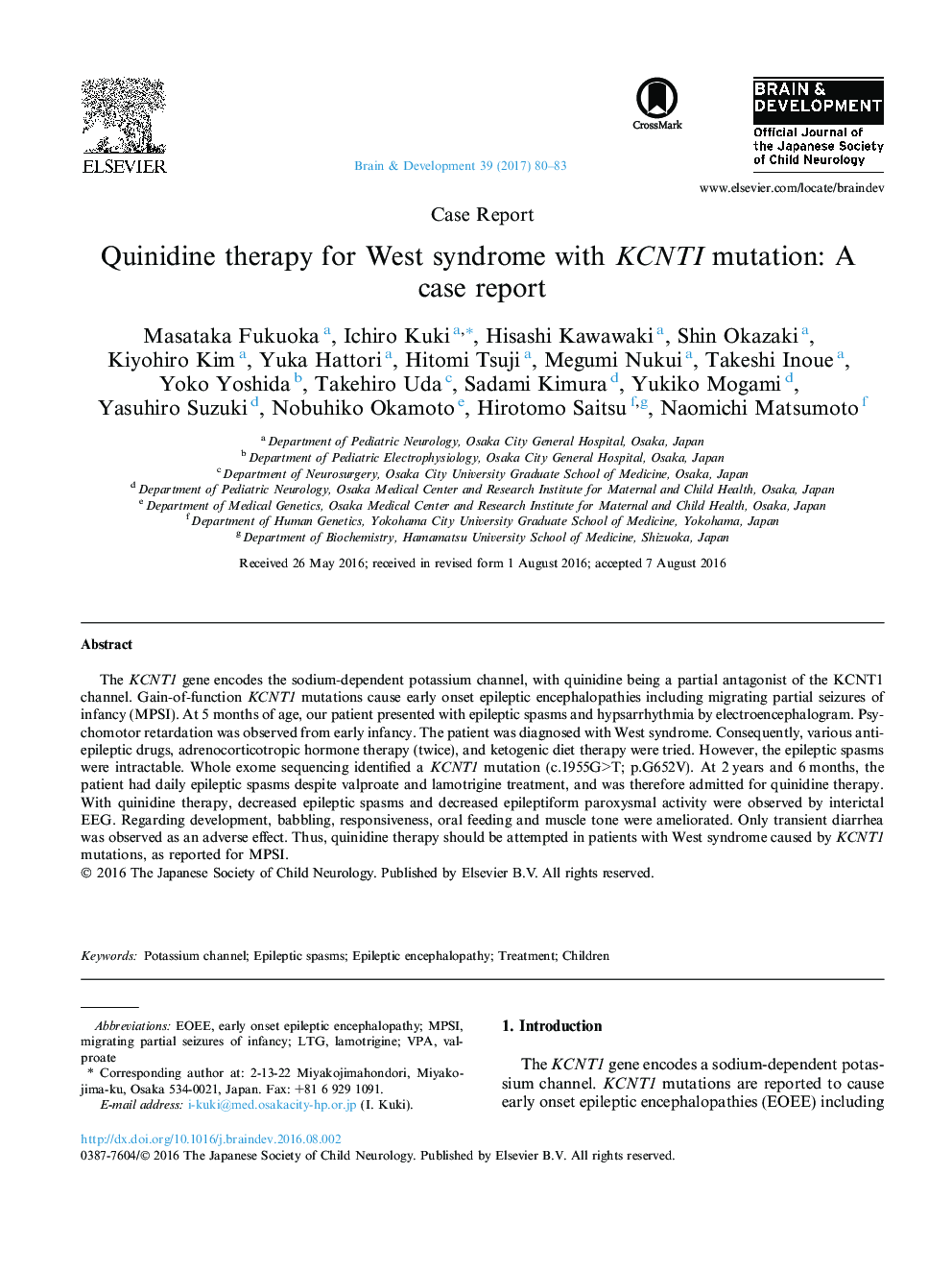| Article ID | Journal | Published Year | Pages | File Type |
|---|---|---|---|---|
| 5626452 | Brain and Development | 2017 | 4 Pages |
The KCNT1 gene encodes the sodium-dependent potassium channel, with quinidine being a partial antagonist of the KCNT1 channel. Gain-of-function KCNT1 mutations cause early onset epileptic encephalopathies including migrating partial seizures of infancy (MPSI). At 5Â months of age, our patient presented with epileptic spasms and hypsarrhythmia by electroencephalogram. Psychomotor retardation was observed from early infancy. The patient was diagnosed with West syndrome. Consequently, various anti-epileptic drugs, adrenocorticotropic hormone therapy (twice), and ketogenic diet therapy were tried. However, the epileptic spasms were intractable. Whole exome sequencing identified a KCNT1 mutation (c.1955G>T; p.G652V). At 2Â years and 6Â months, the patient had daily epileptic spasms despite valproate and lamotrigine treatment, and was therefore admitted for quinidine therapy. With quinidine therapy, decreased epileptic spasms and decreased epileptiform paroxysmal activity were observed by interictal EEG. Regarding development, babbling, responsiveness, oral feeding and muscle tone were ameliorated. Only transient diarrhea was observed as an adverse effect. Thus, quinidine therapy should be attempted in patients with West syndrome caused by KCNT1 mutations, as reported for MPSI.
